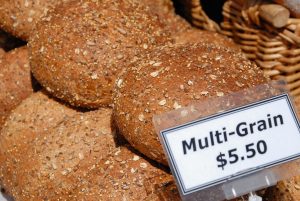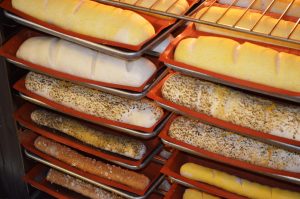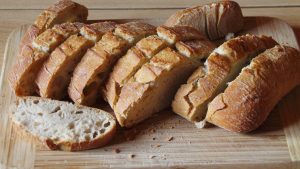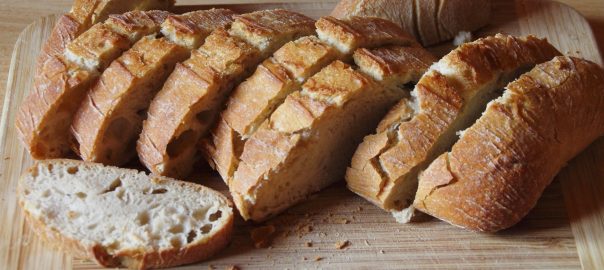Those who grew up in former British colonies in the third world like me are likely to be somewhat indifferent to bread.
While it was readily available, it wasn’t a food staple. Along with rice, bread was somewhat of a torn relationship.
More potatoes for us, fried, baked, boiled and mashed, potatoes were the starch of choice and bread was for sandwiches, toast, hotdogs and hamburgers.
Fast Forward
Fast forward some forty years and I am in the home of the British Colonies where the supermarket and cafe shelves are jammed with pre-made sandwiches, where the bread section represents a not insubstantial segment of the supermarket and where bread in its ‘natural’ unnatural state comes in a variety of shapes, forms and consistencies.
It still holds no great appeal for me, but recently I learned to develop a whole new respect for bread after watching a television program that described how bread is the stuff of revolutions.
 The French Revolution and the Arab Spring are just two incidents in history which came about directly as a result of either shortages of wheat flour, bread or sky rocketing prices.
The French Revolution and the Arab Spring are just two incidents in history which came about directly as a result of either shortages of wheat flour, bread or sky rocketing prices.
The message essentially is that if you want to piss off the populace – take bread off the table.
Real Bread
What I also learned in this program was that the real bread, the stuff that’s not altogether bad for you, is without a doubt sour dough bread.
My first memory of sourdough bread was a sourdough bread bowl filled with clam chowder in downtown Boston in the mid 1980’s. Before that, I had never heard of it and never experienced it as far as I know.
Now, what’s so special about sourdough bread you might ask.
Sourdough bread is made by the fermentation of dough using naturally-occurring lactobacilli and yeast. Sourdough bread has a mildly sour taste not present in most breads made with baker’s yeast and better inherent keeping qualities than other breads, due to the lactic acid produced by the lactobacilli. – Wikipedia
 Well the answer it seems, is pretty clear, it is the most authentic and most natural of the breads.
Well the answer it seems, is pretty clear, it is the most authentic and most natural of the breads.
If it is made properly, it doesn’t contain fermentation accelerants and it is not as artificial and aerated as Chorleywood bread and probably not altogether bad for you, sure it is processed but the processing does not include bleaches and chemicals like ammonium sulfate, ascorbic acid, azodicarbonamide, Soy lecithin, calcium propionate, calcium sulfate, Sodium stearoyl lactylate, Diacetyl Tartaric Acid Esters of Monoglycerides (DATEM), ‘dough conditioners’, emulsifiers, Mono and di-glycerides, ethoxylated mono and di-glycerides, Fat, hfcs, High-fructose corn syrup, honey and sugar.
This cocktail of ingredients can be scarey – check out the details on Fooducate. Huffington Post featured an interesting article on how the FDA redefined the rules for bread and other foods over the years, but the bread one in particular makes really interesting reading.
chemicals like acetone peroxide, chlorine, and benzoyl peroxide (yes, the one used to treat acne) can be included … masked under the term “bleached.” – Redefining Bread
 People who eat sourdough bread and suffer from gluten intolerance reputedly don’t suffer from quite the same symptoms as they do from the modern standardized loaf.
People who eat sourdough bread and suffer from gluten intolerance reputedly don’t suffer from quite the same symptoms as they do from the modern standardized loaf.
My new respect for ‘real’ bread won’t change my bread eating habits, I fortunately don’t appear to suffer from coeliac disease or gluten intolerance, but in the end I am not going to suddenly start becoming a big bread (or rice) fan but, you be the judge, find a local bakery that makes artisinal or sourdough bread that is not artificially fermented and see what it does for you – you may be surprised.
